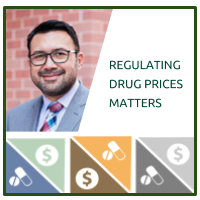REGULATING DRUG PRICES MATTERS – Committed to UHC while strained by NCDs


“Imagine if an epidemic threatened to kill 41 million people every year. It’s already happening. This year. Last year. Next year, too. Non-communicable diseases are the world’s biggest killers…” this tweet from Tedros Adhanom Ghebreyesus (Director General of the WHO) in September 2018, serves as an example of the challenges many countries face as they move toward universal health coverage (UHC).
All health systems, regardless their level of income (affluent and less so), face the challenge of managing finite resources to address unlimited demand for services. This is particularly challenging for many low- and middle-income countries (LMICs) where there is still an unfinished agenda to address infectious and neglected tropical diseases. Meanwhile, more affluent health systems are already bearing the substantial burden of NCDs.
Recent research has demonstrated that for an additional US $1.50 per-capita per-year 15 million deaths could be averted, including 8 million incidents of heart disease and 13 million strokes.[1] In fact, NCDs, including cardiovascular diseases, cancers, strokes, chronic respiratory conditions, and diabetes, contribute to 70% of worldwide mortality.[2] As of 2015, an estimated 40 million deaths have been attributed to NCDs, an increase from 31 million in 2000.[3]
Although pharmaceutical manufacturers have made advancements in drug research and development, the price of many drugs remains out of reach for patients residing in LMICs; moreover, many NCD treatment regimens are needed throughout the lifespan of patients regardless of their ability to pay for them, suggesting the need for long-term policies to lower costs and deliver greater financial protections for patients.
Total health spending on medicines can vary wildly—from 10% in heavily regulated markets to more than 80% in countries with limited bargaining power—while out-of-pocket expenses may represent around 5% of a household’s burden in OECD countries, but more than 70% in many other settings.[4]
UHC means everyone can use the promotive, preventive, curative, rehabilitative, and palliative health services they need, of sufficient quality to be effective, while ensuring that accessing these services does not expose them to financial hardship. In order to fulfill this promise, health systems need to be wiser when allocating scarce resources. This is why drug price regulation matters!
Regulating prices of medicines could take many forms including, international or internal reference pricing; value-based pricing or cost-plus pricing. Other indirect mechanisms should also be considered (i.e. policies on duties and taxes, markups, competition, public procurement/tendering, centralized negotiations and generic substitution) to improve the efficiency of health systems.
Progress is possible! Just last October, UN Member States adopted two health-related declarations, one of them aimed at beating NCDs, thus it seems they finally had reached the global policy agendas. Now it is our time to sharpen our tools to support the communities we serve in order to help them cope with a double challenge: reaching UHC while bearing in mind NCDs.
MSH, in collaboration with UNDP and the Access and Delivery Partnership (ADP), is holding an international workshop on the strategic pricing of medicines. For more information, please contact me at [email protected] or follow me on social media at @HectorECastroJ.
Link to resource:
World Health Organization (2015) WHO Guideline on Country Pharmaceutical Pricing Policies – PDF, 134pp
[1] Bertram MY, Sweeny K, Lauer JA, Chisholm D, Sheehan P, Rasmussen B, et al (2018). Investing in Non-Communicable Diseases: An Estimation of the Return on Investment for Prevention and Treatment services. Lancet. 391: 2071-2078. doi:10/1016/S0140-6736(18)30665-2.
[2] The Institute for Health Metrics and Evaluation (IHME). Global Burden of Disease, 2017
[3] WHO (2015a). Non-Communicable Disease Fact Sheet, accessed 29 July 2018.
[4] Peterson-Kaiser Health Systems Tracker What are the recent and forecasted trends in prescription drug spending?
About the Author

Héctor Castro, MD, Senior Technical Director of Pharmaceutical Economics and Financing at MSH, has nearly 20 years of global health experience with a focus on health systems strengthening in quality assurance, assessment, health financing, strategic purchasing, and provision of health care technologies (including medicines, devices, and procedures). Before joining MSH, Héctor served as chief officer, technical advisor, director, and manager in strategic planning, quality assurance, health, safety, and environment for various pharmaceutical, health insurance, and nongovernmental organizations. He is former founding Chief Executive Director of the Health Technology Assessment (HTA) Institute of Colombia and Director of Medicines and Technologies at the Ministry of Health and Social Protection of Colombia. He currently serves on the Board of Directors of the Health Technology Assessment International, a prominent international network in the field of health technology assessment. Héctor has an MSc in Health Policy, Planning, and Financing from the London School of Economics & Political Science, is a Doctor in Public Health and Policy/Health Economics from the London School of Hygiene & Tropical Medicine, and was a Takemi Postdoctoral Fellow at the Harvard T.H. Chan School of Public Health.




Responses